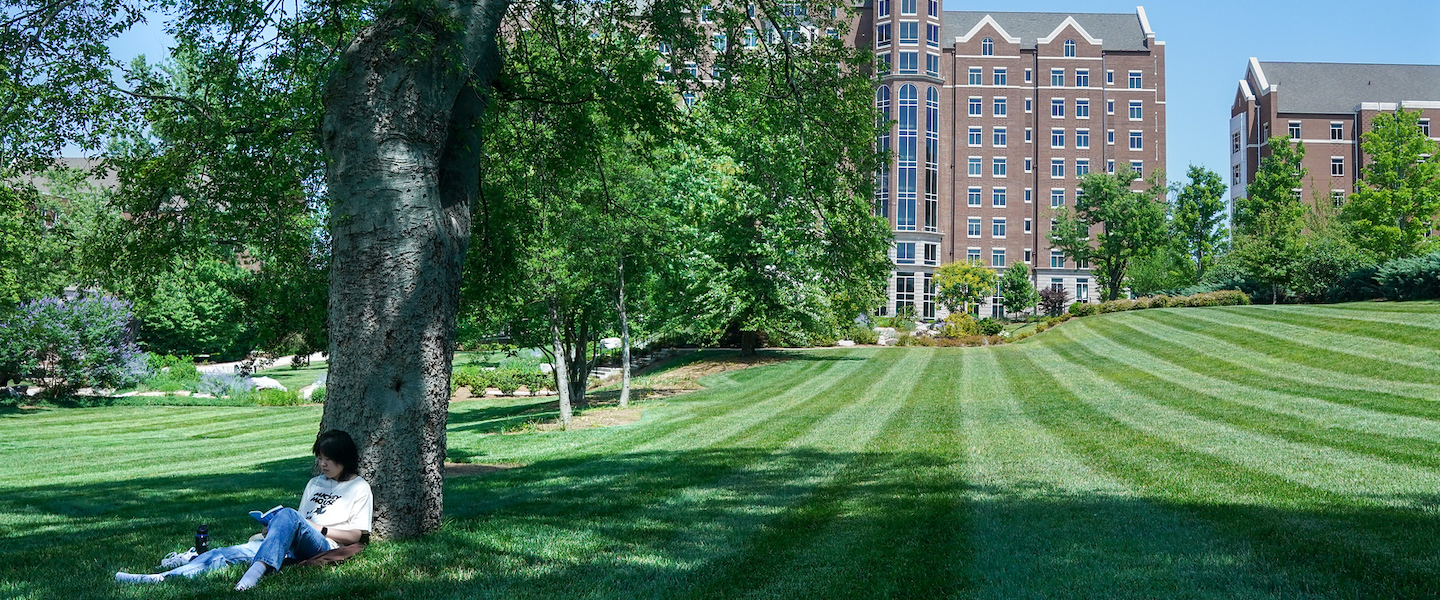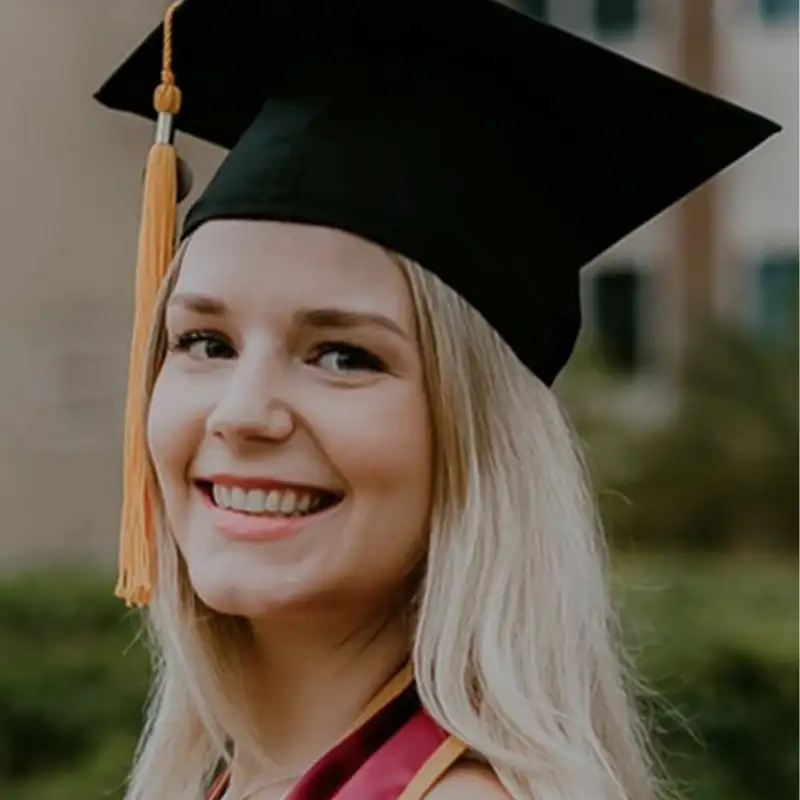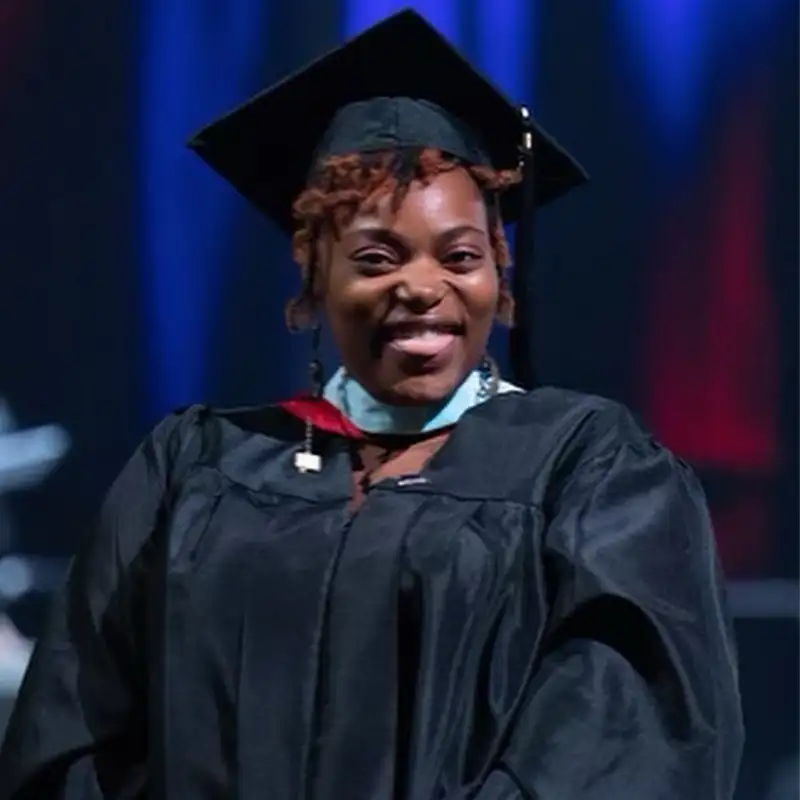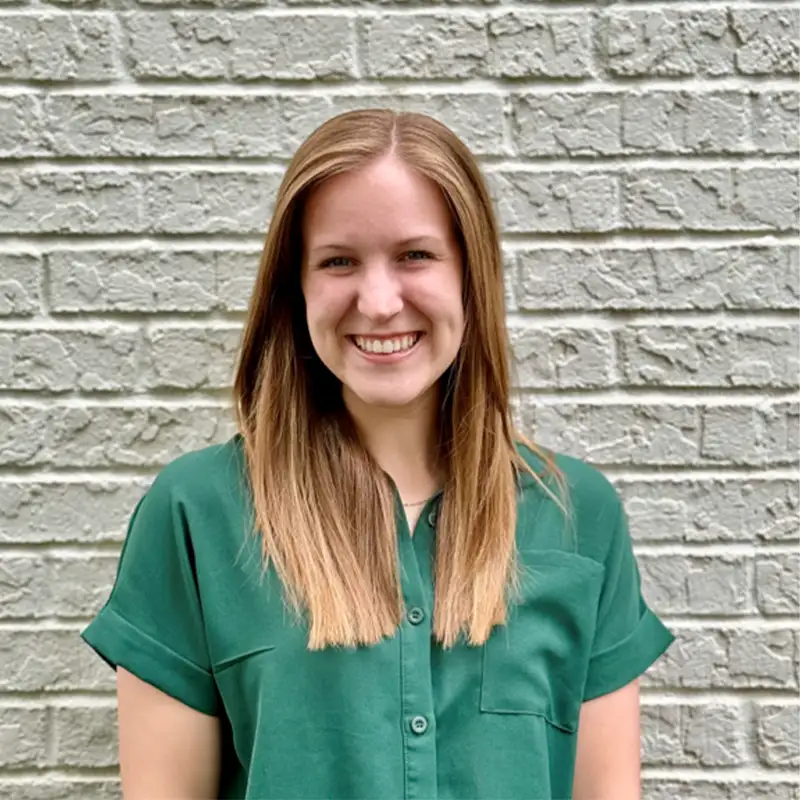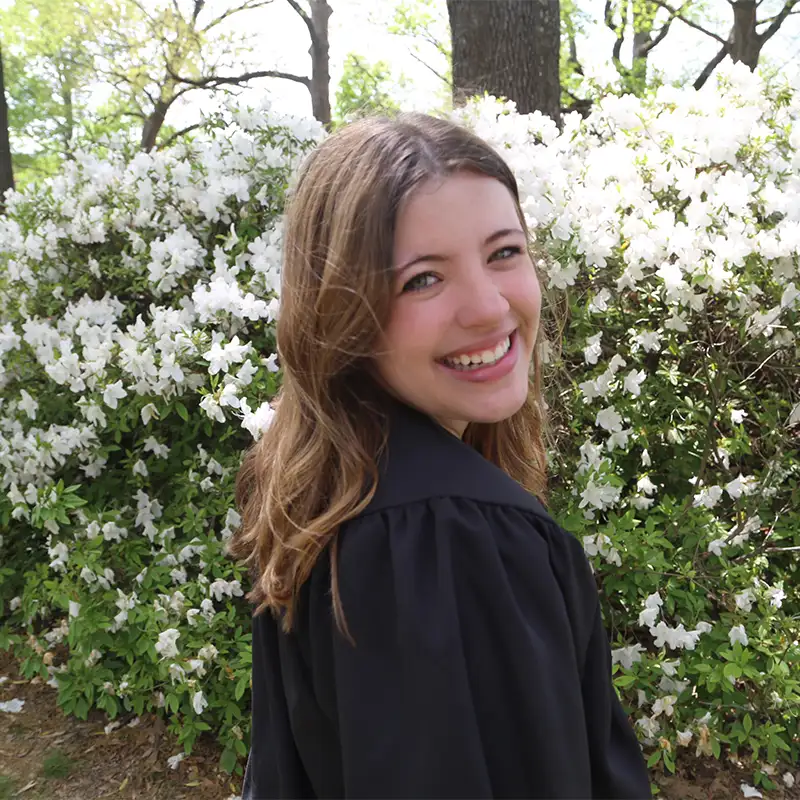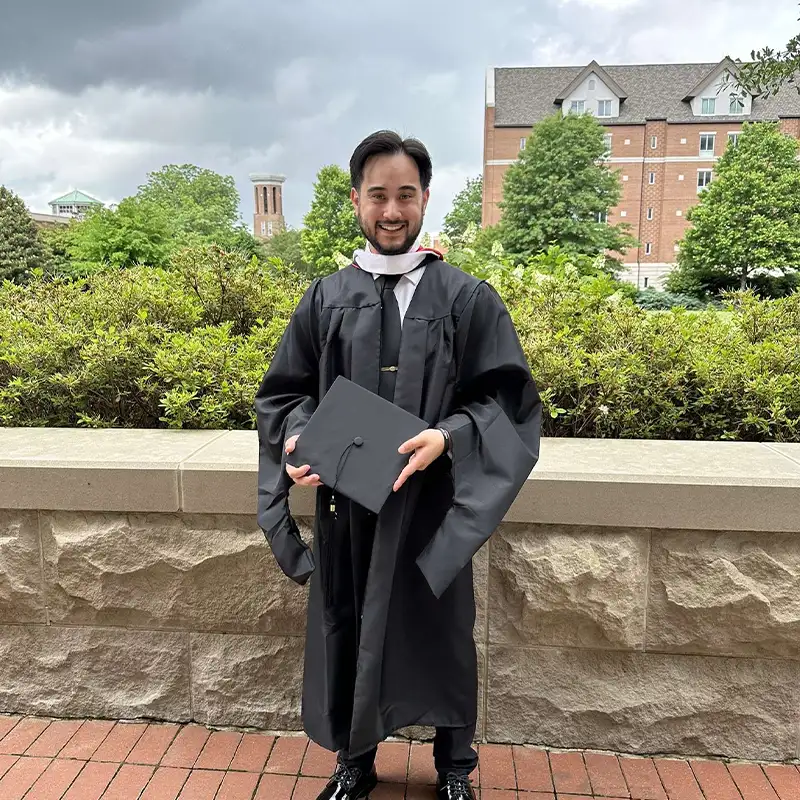Why Study Mental Health Counseling?
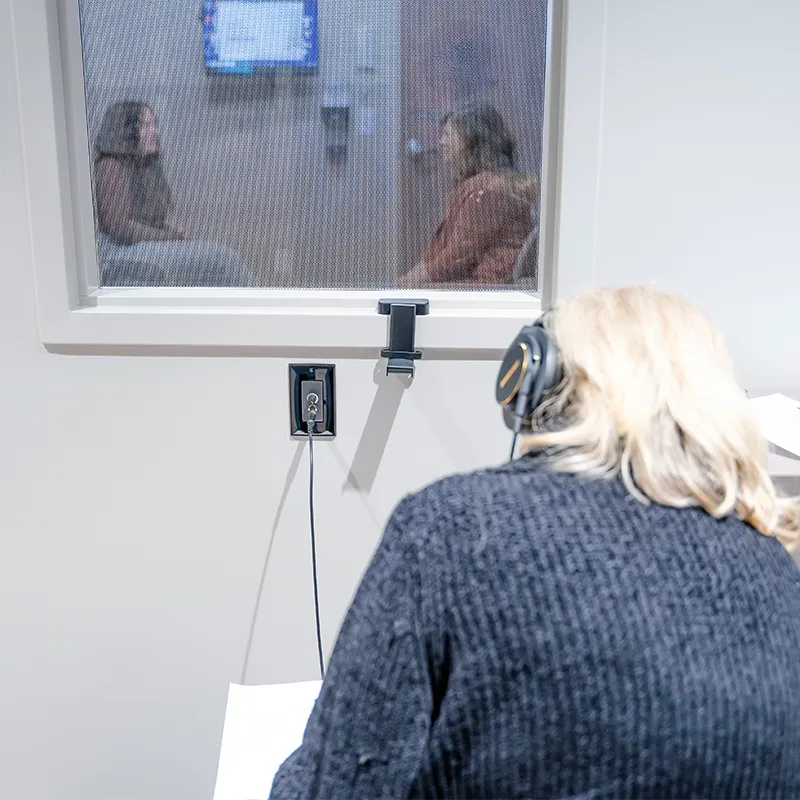
Belmont’s M.A. in Mental Health Counseling is unique among counseling programs.
Combining rigorous study in contemporary scientific therapy with the wisdom, insight and values of the Christian tradition of caring for souls, this one-of-a-kind graduate program will give you practical tools and techniques to more effectively treat your patients. Moreover, it will also expand your capacity for compassionate and professional service.
Our program, drawing students from a variety of backgrounds, is led by a diverse faculty who remain engaged in research, academic writing, and clinical practice to ensure students are equipped with the training and skills required to practice as counselors after graduation. While fulfilling standards for accreditation, the faculty and curricula offer spiritual and theological foundations concomitant to psychotherapeutic training that will prepare students to become practitioners who are prepared and empowered to ethically treat clients holistically.
Request Information
Clinical Experience in the Nation's Health Care Captial
Studying Mental Health Counseling at Belmont University means immersing yourself in the heart of Nashville, the nation's health care capital. With access to approximately 50 field experience sites across the city, students gain hands-on training in diverse clinical settings. These internships provide deep exposure to the realities of clinical mental health counseling, allowing students to engage in a variety of professional experiences, including collaboration with clinicians, participation in client care activities, and involvement in essential counseling practices. Belmont’s strong connections within the Nashville health care community create unparalleled opportunities for professional growth and career preparation.
As part of Belmont’s College of Pharmacy & Health Sciences, students in the School of Mental Health Counseling also benefit from interprofessional collaboration in our Center for Interprofessional Engagement & Simulation. Here, you’ll train alongside other health care students in state-of-the-art labs and simulation centers designed to mimic real-world clinical environments. This immersive, hands-on approach ensures that graduates enter the workforce with confidence, experience, and the ability to work effectively in interdisciplinary health care teams—making Belmont the ideal place to launch your career in mental health counseling.
Our Mission Statement and Program Objectives
The School of Mental Health Counseling seeks to train professional counselors who will act ethically as agents of the ministries of healing and transformation through efficacious counseling theory, techniques, skills, and respect for diversity.
Program Objectives for Mental Health Counseling
- Identify and resolve ethical issues using current codes of ethics
- Become knowledgeable and apply multicultural and cross-cultural counseling skills and current competencies
- Utilize culturally relevant strategies based on human growth and development
- Integrate vocational counseling knowledge into holistic counseling strategies
- Select and utilize efficacious counseling theories, skills, and techniques
- Facilitate care throughout the lifespan using Christian and pastoral theological perspectives of human suffering
- Demonstrate appropriate screening practices and leadership of groups
- Select and utilize appropriate and ethical assessment instruments and techniques
- Select and utilize appropriate and ethical research methods for the improvement of counseling services
- Apply the Competencies for Addressing Spiritual and Religious Issues in Counseling
- Be committed to serve as Christian advocates for clients and their communities
What You'll Learn
As a student in the master's level Mental Health Counseling program, you will choose one of four specialty tracks. Each requires 60 hours of coursework and common classes in Techniques of Counseling, Foundations of Clinical Practice, and more. The second year of the program includes a Practicum and Internship experience at one of the dozens of site affiliations in the Greater Nashville Area, or Belmont can form a new affiliation with a practice you prefer, as long as it meets all CACREP requirements. All of these specialty tracks prepare you for variations in care approaches, practice settings, and licensure requirements so that you may impact others as early as the second year of this program, and beyond.
Methods of Instruction
The instruction for the Clinical Mental Health Counseling, Marriage, Couples and Family Counseling and Pastoral Therapy tracks within the Mental Health Counseling Program at Belmont University are primarily taught on campus with the exception of the Field Education element. Program faculty in these tracks teach all curriculum face to face with the students. The School Counseling Track is taught solely online with the exception of one weekend intensive per semester.
Program Details
The Master of Arts in Mental Health Counseling degree is a 60 credit hour program. For students enrolled in the Clinical Mental Health Counseling specialty track, the program satisfies the educational requirement for licensure as a Professional Counselor-Mental Health Service Provider in the State of Tennessee. For those enrolled in the Marriage, Couples and Family Counseling specialty track, the program satisfies the educational requirements for licensure as a Marital & Family Therapist in the State of Tennessee. For students enrolled in the Pastoral Counseling specialty track, the program satisfies the academic requirements for licensure as a Clinical Pastoral Therapist in Tennessee. The School Counseling track satisfies requirements for licensure as a school counselor in the state of Tennessee.
Students are required to complete a practicum and internship consisting of 700 clock hours of counseling and counseling related activities in an approved site or agency as a part of the program. Normally, students will complete 24 semester hours of course work prior to beginning their practicum experience. School Counseling students must complete a pre-practicum class consisting of observations during their first year. Students will be required to pass a background check and show proof of approved professional liability insurance prior to beginning the clinical experience component of the program.
Graduate Student Life at Belmont
As a graduate student at Belmont University, you are in an exceptional environment to develop yourself and reach your highest potential. In the classroom, you will meet knowledgeable professors and fellow students who are both dedicated and supportive in helping you succeed.
Moreover, Nashville’s diverse economy boasts an array of sectors from finance to health care and tech, providing students with plenty of chances to explore their potential. In short, there are few places as well-suited for career growth as Belmont with its entrepreneurial spirit and a wealth of connections in Nashville and beyond.
Get Involved
Join a pharmacy club, volunteer for Habitat for Humanity and enjoy basketball games, concerts, chapel services and much more. On campus, you’ll find countless opportunities to become involved in activities, helping the surrounding community and gaining valuable experience along the way.
Learn more about opportunities for graduate students
In order to matriculate through the program, students must be admitted, complete all degree and assessment requirements, and apply for graduation.
The following links assist with matriculation through the 60-hour master's programs from admission to graduation.
Student Handbooks
The Council for Accreditation of Counseling and Related Educational Programs (CACREP), a specialized accrediting body recognized by the Council for Higher Education Accreditation (CHEA), has granted accreditation to the following programs in Belmont University’s College of Pharmacy & Health Sciences: the Clinical Mental Health Counseling Program (M.A.) and the Marriage, Couples, and Family Counseling Mental Health Counseling Degree Programs (M.A.).
Outcomes & Alumni Success
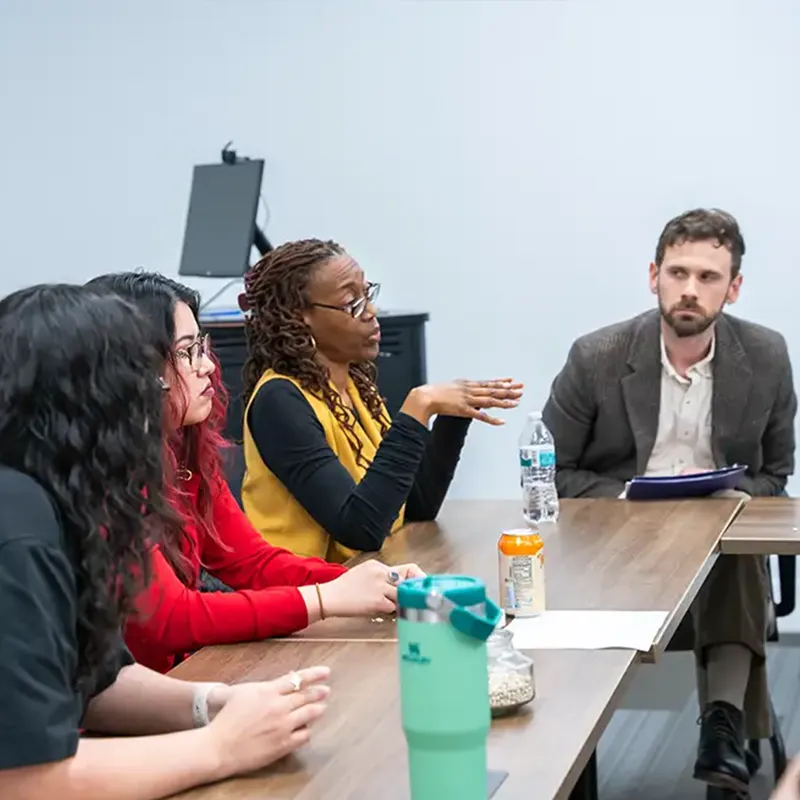
The School of Mental Health Counseling alums are highly sought out professionals who are licensed in the field as professional counselors, pastoral therapists, marriage and family therapists, school counselors, or higher education faculty. These professionals work in clinical mental health counseling agencies, schools, research facilities, and universities across the United States.
Committed to Your Success
Students in the School of Mental Health Counseling leave the program with knowledge of counseling as appropriate for clients from all walks of life, acceptable practices based on the codes of ethics, current counseling techniques, research practices, assessment procedures when working with clients, the ability to diagnose and treat clients using current treatment plans and diagnostic practices, and the ability to integrate spirituality into the counseling process. Enhanced knowledge in these practices enables alum to become licensed as clinical professionals and work as leaders in the field.
Our high passing rates on state board exams (100% over the past three years) offers an advantage to students seeking employment and licensure after meeting state board requirements. The program’s current CACREP accreditation status in Clinical Mental Health Counseling and Marriage, Couples, and Family Therapy tracks allow students the opportunity to become licensed in most states.
97% of College of Pharmacy & Health Science graduates are employed, pursuing continuing education, or enlisted in the military within 6 months of graduation and 97% of employed graduates are in positions that align with their short or long term career goals.
Learn more about Career & Professional Development at Belmont
Alumni Testimonials
Career Possibilities
Mental health counselors have a diverse range of career possibilities, including clinical mental health counseling, marriage, couples and family counseling, clinical pastoral therapy, and school counseling. The demand for these professionals is expected to grow significantly, driven by the increasing need for mental health services across various settings such as schools, hospitals, and community organizations. Counselors in these fields work with individuals, couples, and families to address issues like relationship dynamics, emotional challenges, and behavioral disorders. Educational requirements typically include at least a master's degree in a relevant field, along with licensure for practice. Overall, the career outlook for mental health counselors remains strong, with average salaries around $46,050 annually.
This track satisfies the academic coursework requirements for Licensed Professional Counselor (LPC) and the Licensed Professional Counselor with the Mental Health Service Provider designation (LPC-MHSP) in Tennessee. Graduates of this track can work in a variety of settings, such as clinical mental health counseling facilities, nonprofit agencies, addiction treatment centers, career counseling centers, adult probation offices, hospital counseling centers and in private counseling practices. 100% of our CMHC graduates passed the National Counseling Exam (NCE).
Degree Plan:
Fall Year One
MHC 5011 - Foundations of Clinical Practice
MHC 5013 - Christian Perspectives on Human Suffering
MHC 5020 – Theories of Counseling
MHC 5170 - Vocational Discernment & Counseling
Spring Year One
MHC 5015 - Spirituality & Theories of Human Development
MHC 5016 - Diversity & Social Justice in the Clinical Encounter
MHC 5017 - Professional Ethics in the Clinical Encounter
MHC 5019 - Techniques of Counseling
Summer Year One
MHC 5014 - Diagnosis & Treatment of Mental Disorders
MHC 6010 - Practicum in Mental Health Counseling
*Students complete supervised counseling practicum experiences that total a minimum of 100 clock hours including a minimum of 40 direct hours over a minimum of 10 weeks.
Fall Year Two
MHC 5018 - Theories & Methods of Psychotherapy Research
MHC 5210 - Group Dynamics & Therapy
MHC 5310 - Psychometrics & Assessment
MHC 6110 - Internship in Mental Health Counseling I
*Students complete a minimum of 240 direct clock hours and a total of 600 clock hours over the course of two semesters.
Spring Year Two
MHC 5120 - Diagnosis & Treatment of Addictions
MHC 5410 - Family Systems Theory
MHC 6210 - Internship in Mental Health Counseling II
*Students complete a minimum of 240 direct clock hours and a total of 600 clock hours over the course of two semesters.
MHC Elective
Summer Year Two
MHC 5160 - Psychological & Theological Perspectives on Human Sexuality
MHC 5220 - Therapy with Children & Adolescents
**Please note all courses are subject to change and availability. See your advisor to ensure accuracy. All courses listed above must be taken to receive M.A. degree for Mental Health Counseling from Belmont University.**
This specialty track qualifies you to apply for licensure as a Marital and Family Therapist (LMFT) in Tennessee. Graduates go on to work with individuals, couples and families in a variety of counseling settings. Being licensed as a marriage, couples and family therapist does not limit your ability to work with individuals. The designation refers more to the approach—an LMFT is trained to help each client within the context of his or her social environment and relationships, past or present. 75% of our MCFC students passed the MFT Clinical Exam.
Degree Plan:
Fall Year One
MHC 5011 - Foundations of Clinical Practice
MHC 5013 - Christian Perspectives on Human Suffering
MHC 5040 - Family Life Cycle
MHC 5410 - Family Systems Theory
Spring Year One
MHC 5015 – Spirituality & Theories of Human Development
MHC 5016 – Diversity & Social Justice in the Clinical Encounter
MHC 5025 - Techniques in Marriage, Couples, & Family Counseling
MHC 5030 - Professional Ethics in Couples & Family Counseling
Summer Year One
MHC 5014 – Diagnosis & Treatment of Mental Disorders
MHC 5250 - Practicum in Marriage, Couples, & Family Counseling
*Students complete supervised counseling practicum experiences that total a minimum of 100 clock hours including 40 direct hours over a minimum of 10 weeks.
Fall Year Two
MHC 5018 - Theories & Methods of Psychotherapy Research
MHC 5170 - Vocational Discernment
MHC 5210 – Group Dynamics & Therapy
MHC 6310 - Internship in Marriage, Couples, & Family Counseling I
*Students complete a minimum of 300 direct clock hours and a total of 600 clock hours over the course of two semesters.
Spring Year Two
MHC 5130 - Family Therapy: Skills & Practice
MHC 5140 - History & Theology of Marriage & the Family
MHC 5150 - Marital and Couples Therapy
MHC 6320 - Internship in Marriage, Couples, & Family Counseling II
*Students complete a minimum of 300 direct clock hours and a total of 600 clock hours over the course of two semesters.
Summer Year Two
MHC 5160 - Psychological & Theological Perspectives on Human Sexuality
MHC 5230 - Systemic Approaches to Child Therapy
**Please note all courses are subject to change and availability. See your advisor to ensure accuracy. All courses listed above must be taken in order to receive the M.A. degree for Mental Health Counseling from Belmont University.**
This track satisfies the academic requirements for licensure in the state of Tennessee as a Clinical Pastoral Therapist. While a Clinical Pastoral Therapist will have a practice that looks very similar to that of an LPC, LPC-MHSP, or LMFT, the difference is in their reliance on faith, spirituality and theology, in addition to psychotherapy, to help people who are suffering. Graduates can work in a variety of settings including clinical mental health counseling facilities, faith-based counseling centers, psychiatric hospitals and in private practice. Zero students have taken the licensure exam in this track.
Degree Plan:
Fall Year One
MHC 5011 - Foundations of Clinical Practice
MHC 5013 - Christian Perspectives on Human Suffering
MHC 5020 – Theories of Counseling
MHC 5530 – History of the Cure of Souls Tradition
Spring Year One
MHC 5015 - Spirituality & Theories of Human Development
MHC 5017 - Professional Ethics in the Clinical Encounter
MHC 5019 - Techniques of Counseling and Psychotherapy
MHC 5540 – Pastoral Theological Method
Summer Year One
MHC 5014 - Diagnosis & Treatment of Mental Disorders
MHC 6010 - Practicum in Mental Health Counseling
*Students complete supervised counseling practicum experiences that total a minimum of 100 clock hours including a minimum of 40 direct hours over a minimum of 10 weeks.
Fall Year Two
MHC 5560 – Biblical Hermeneutics and Pastoral Care
MHC 5410 – Family Systems Theory OR MHC 5550 – Psychodynamic Psychotherapy
MHC 5210 – Group Dynamics OR MHC 5520 – Diagnosis and Treatment of Personality Disorders OR MHC 5150 – Martial and Couples Therapy
MHC 6110 - Internship in Mental Health Counseling I
*Students complete a minimum of 240 direct clock hours and a total of 600 clock hours over the course of two semesters.
Spring Year Two
MHC 5016 – Diversity & Social Justice in the Clinical Encounter
MHC 5570 – Human Transformation & Change in the Bible
MHC 5130 – Family Therapy: Skills and Practice OR MHC 5510 – Clinical Hermeneutics and the Healing Dialogue in Psychotherapy OR MHC 5170 – Vocational Discernment & Counseling OR MHC 5120 – Diagnosis and Treatment of Addictions
MHC 6210 - Internship in Mental Health Counseling II
*Students complete a minimum of 240 direct clock hours and a total of 600 clock hours over the course of two semesters.
Summer Year Two
MHC 5018 – Theories & Methods of Psychotherapy Research
MHC 5160 - Psychological & Theological Perspectives on Human Sexuality OR Approved Elective
**Please note all courses are subject to change and availability. See your advisor to ensure accuracy. All courses listed above must be taken to receive M.A. degree for Mental Health Counseling from Belmont University.**
The School Counseling Track prepares graduate students to serve as school counselors in public or private pre-k-12 schools. The program satisfies the educational requirement for licensure as a School Counselor in the State of Tennessee. There is a 100% passing rate on the Praxis Exam.
Degree Plan:
Fall Year One
MHC 5005 – Foundations of School Counseling
MHC 5020 – Theories of Counseling and Psychotherapy
MHC 5007 – Pre-Practicum
MHC 5170 – Vocational Discernment & Counseling
Spring Year One
MHC 5006 – Issues, Ethics, and Evaluation of School Counseling Programs
MHC 5019 – Techniques of Counseling and Psychotherapy (requires a 1-week-face-to-face intensive)
MHC 5015 – Spirituality and Theories of Human Development
MHC 5016 – Diversity and Social Justice in the Clinical Encounter
Summer Year One
MHC 5220 – Therapy with Children and Adolescents (requires a 2-day face-to-face intensive)
EDU 6580 – Introduction to the English Language OR EDU 5025 – Literacy, Culture, and Community OR EDU 6580 – Introduction to English Learners OR another approved education course**
Fall Year Two
MHC 5210 – Group Dynamics & Therapy
MHC 6010 Practicum in Mental Health Counseling (School Counseling Section)
MHC 5310 – Psychometrics & Assessment
MHC 5018 – Theories and Methods of Psychotherapy Research
Spring Year Two
MHC 6110 – Internship in Counseling (School Counseling Section)
MHC 5410 – Family Systems Theory
Education or Counseling Elective including:
EDU 5800 – Intro to Exceptional Learners OR another **approved education course
MHC 5011 – Foundations OR MHC 5017 – Professional Ethics in the Clinical Encounter OR MHC 5120 – Diagnosis and Treatment of Addictions OR MHC 5130 – Marriage and Family Skills OR another counseling/education course selected with advisor approval)
Summer Year Two
MHC 5014 – Diagnosis and Treatment of Mental Disorders (requires a 3-day face-to-face intensive)
*Comprehensive Exam Occurs
Fall Year Three
MHC 6210 – Internship in Counseling II (School Counseling Section)
** Recommended EDU Courses for School Counselors
EDU 5010 – Contemporary Issues
EDU 5110 – Advanced Exceptional Psychology
EDU 5800 – Introduction to Exceptional Leaders
EDU 6580 – Introduction to English Learners
EDU 5025 – Literacy, Culture, and Community
EDU 5630 – Leadership in Communication and Collaboration in Special Education
EDU 5605 – Advanced Study of Lifespan Growth, Development, and Disability
**Please note all courses are subject to change and availability. See your advisor to ensure accuracy. All courses listed above must be taken to receive M.A. degree for Mental Health Counseling from Belmont University.**
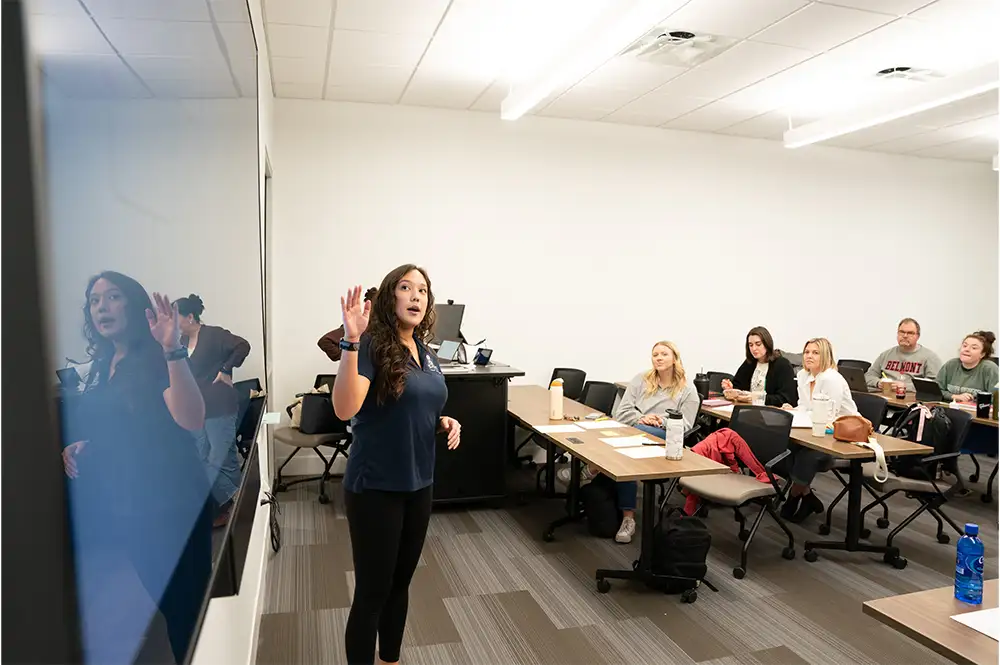
Frequently Asked Questions
Students must complete 60 semester-credit-hours to graduate. If students take 12 hours each fall and spring and 6 hours each summer, it is possible to graduate within 2 years.
This could affect licensure so you will want to meet with your advisor to review requirements for the state in which you will eventually become licensed. We can help you meet requirements if we know early in your program.
Your will start your practicum in the summer of your first year. This means you will be seeing clients as early as your third semester. Faculty will help you prepare for this.
Our program’s field experience coordinator will meet with you and help you with site placement. Ultimately, you must interview with the site, but you are not on your own finding an appropriate place as you may find in some counseling programs.
You will complete a total of 700 clock hours of field experience (minimum) while in the program. These hours are completed over three semesters during practicum and two separate internships.
The state has requirements for each separate specialty area before licensure or certification can occur. School counselors follow requirements from the Tennessee Education Agency whereas Clinical Pastoral Therapists, Professional Counselors, and Marriage and Family Therapists follow requirements from the Tennessee Board for Licensed Professional Counselors, Licensed Marital and Family Therapists, and Licensed Clinical Pastoral Therapists. School counselors can apply for certification right away whereas other specialties must attain an internship license from the state board before practicing. Full licensure requires completion of clinical hours occurring after graduation under supervision by a state licensed supervisor. Follow the board requirements for each specialty area.
Contact Us
College of Pharmacy & Health Sciences
Linda Arce
Senior Admissions Coordinator
615.460.5193
Email Linda
Schedule a Call

